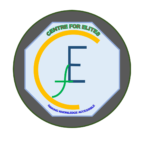Rwanda, a small landlocked country in East Africa, has undergone a remarkable transformation over the past few decades. From the ashes of its tragic history to becoming one of Africa’s fastest-growing economies, the nation’s journey reflects an unwavering commitment to development and innovation. One of the most significant areas of growth has been in the realm of education, where technology has emerged as a pivotal force shaping the landscape. This blog post explores the profound impact of technology on education in Rwanda, focusing on accessibility, quality of learning, teacher training, and future opportunities.

Increased Accessibility to Educational Resources
Access to education has historically been a challenge in Rwanda, particularly in rural areas. However, the advent of technology has begun to bridge the gap. Initiatives such as the government’s “Smart Schools” program and the introduction of digital learning platforms have significantly increased access to educational resources. For instance, the “One Laptop per Child” project aims to provide students with laptops that facilitate interactive learning experiences. By leveraging low-cost technology, Rwanda is making strides towards ensuring that even the most marginalized kids can access quality educational materials.
Furthermore, mobile technology plays a critical role in this effort. The widespread use of mobile phones in Rwanda has allowed educators to disseminate information and communicate with students and parents more efficiently. Educational apps and platforms like E-learning Rwanda enable students to engage with a wealth of information from virtually anywhere, fostering a more inclusive educational environment.
Enhancing Quality of Education
The introduction of technology is not only about access but also about enhancing the quality of education. Digital tools and resources have revolutionized traditional teaching methodologies, enabling a more engaging and effective learning experience. Interactive e-learning platforms provide diverse educational content that caters to various learning styles, allowing students to take charge of their education in ways never before possible.
Rwanda’s education system, heavily influenced by the African Union’s Agenda 2063 and the United Nations’ Sustainable Development Goals, aims to equip students with 21st-century skills. Incorporating technology into the classroom aligns with these goals by fostering critical thinking, problem-solving, and collaboration among students. For example, the use of coding and robotics programs in schools equips students with essential skills for the digital economy, preparing them for future employment opportunities.
Teacher Training and Development
While technology has paved the way for new learning experiences, it is essential to recognize that educators play a crucial role in this transformation. The implementation of technology in classrooms requires that teachers are adequately trained and equipped to use these tools effectively. In Rwanda, various training programs focus on enhancing teachers’ digital competencies, ensuring they can integrate technology into their teaching practices.
The government, in collaboration with NGOs and educational institutions, has developed workshops and continuous professional development initiatives to help teachers adapt to changing pedagogical methods. By empowering educators with the necessary skills and resources, Rwanda is laying the groundwork for an education system that not only embraces technology but also fosters a culture of innovation.
Bridging the Digital Divide
Despite the progress made, challenges remain in fully integrating technology into Rwanda’s education system. The digital divide persists, particularly between urban and rural areas, where access to electricity and the internet can be inconsistent. To address this issue, the Rwandan government has invested in infrastructure development, such as expanding electricity access and enhancing internet connectivity through national fibre optic projects.

Moreover, innovative approaches to e-learning are being adopted to accommodate students from diverse backgrounds. Offline learning solutions, such as pre-loaded USB drives containing educational content, are being provided to rural schools, ensuring that all students can benefit from digital resources regardless of their location.
Future Opportunities and the Road Ahead
Looking forward, the integration of technology into education in Rwanda presents numerous opportunities for enhancing economic growth and societal development. As students acquire digital literacy and critical thinking skills, they will be better prepared to participate in an increasingly global and technologically driven economy. Furthermore, as the nation continues to strengthen its commitment to innovation through initiatives such as Vision 2050, the potential for tech-driven educational solutions will grow, fuelling the next generation of Rwandan leaders.
The rise of the tech industry in Rwanda is also encouraging educational institutions to develop partnerships with tech companies. Such collaborations can provide students with real-world experience and internship opportunities that align with their studies, creating a seamless transition from education to employment.
Conclusion
The impact of technology on education in Rwanda cannot be overstated. It has opened doors to previously inaccessible resources, enhanced the quality of instruction, empowered educators, and fostered a more inclusive learning environment. While challenges remain, the country’s ongoing commitment to reducing the digital divide and investing in educational innovation signifies a bright future for Rwandan youth.
As technology continues to shape the educational landscape, Rwanda stands poised to harness this potential, ensuring that the next generation is equipped with the tools and skills needed to thrive in an ever-evolving world. The journey of transforming education through technology in Rwanda exemplifies not only a nation’s resilience and ambition but also serves as a beacon of hope and inspiration for other countries on a similar path.
Discover more from Umuco Nyarwanda
Subscribe to get the latest posts sent to your email.
